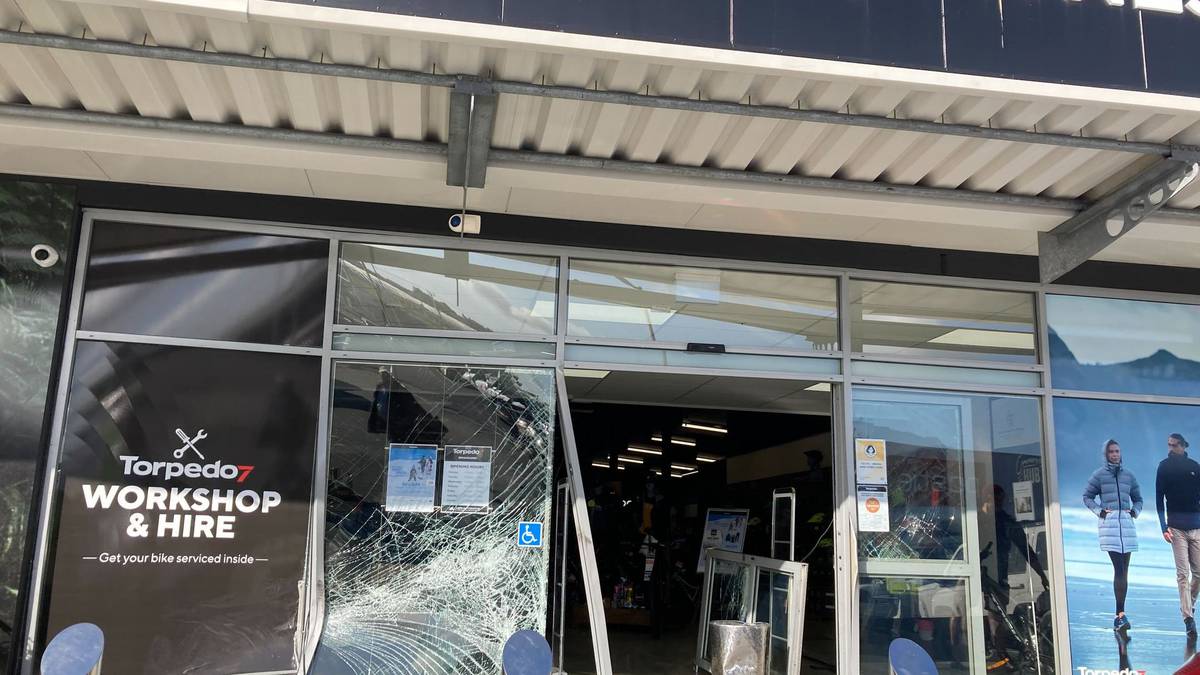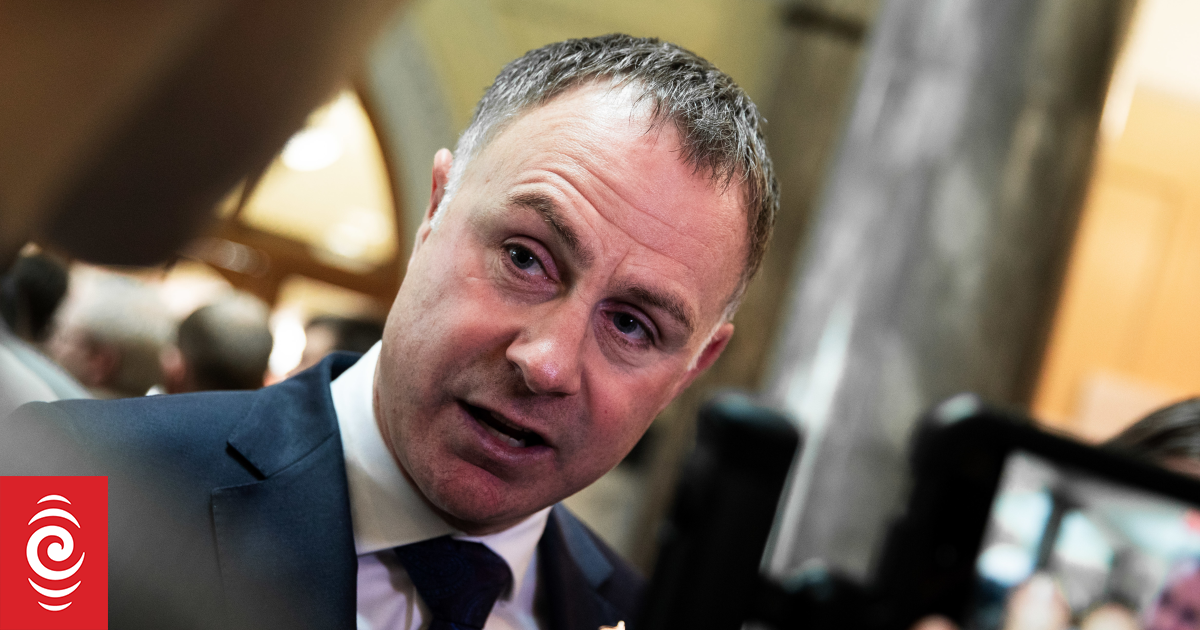Torpedo7 in Whangārei, one of nine businesses ram raided in Northland in June. Photo / NZME
The Government announcement on youth crime, providing some extra funding for Northland support programmes has provoked a mixed reaction.
The main focus of the announcement was on fast-tracking interventions for serious offenders aged 10 to
13, so a plan could be put in place to deal with their offending within 24 to 48 hours. However, this would initially only be rolled out in Counties Manukau and Waitakere, not in Northland.
This month’s announcement provided an extra $2m for community support programmes in Northland, along with three other regions, to help young offenders.
Statistics released with the announcement showed the number of ram raids on Northland businesses were starting to decrease since a large increase this year.
Government statistics showed 23 ram raids in Northland in 2022, until November 20. There was just one ram raid in November and one in October, down from three in September and four in August.
The biggest spike was June, when nine ram raids were recorded. Nationally, as of November 21, there have been 526 ram raids this year, nearly half of which were in Auckland.
Northland Chamber of Commerce president and owner of Bernina Northland, Tim Robinson, said the statistics on ram raids and youth crime did not reflect the experience of retailers in Whangārei.
“We would say that youth crime is still at full steam, as much as it has been all year.”
Advertisement
He had heard of a number of recent ram raids, he said, and questioned the validity of the Government’s statistics.
“There are some businesses in town who are really struggling and their staff are feeling unsafe and feeling insecure going to their cars after work,” Robinson added.
NZ Dairy and Business Owners Group chairman Sunny Kaushal said any step to help get offenders back into a constructive life was welcome, but they needed to learn discipline and respect.
He said under-reporting meant official statistics on crime were inaccurate.
“That’s totally incorrect and that can be challenged. The people who are saying that need to know there’s a 70 per cent under-reporting.
“The businesses, all those small operators, they are sick and tired, they have lost their faith in the police and the Government and the judicial system.”
Many business owners have given up reporting crime as a lack of police resources resulted in delays, Kaushal said.
“For smaller incidents, they do not turn up at all. There are not enough police to turn up.”
Advertisement
/cloudfront-ap-southeast-2.images.arcpublishing.com/nzme/Z7VN5YDL4ZDQJIJEXRNKWGSRYQ.JPG)
A more visible police presence would act as a deterrent, Kaushal said.
Police Minister Chris Hipkins said the Government’s approach regarding young offenders worked.
“I saw some of the great work being done during my visits to every police district this year.
“By taking this approach, fast-tracking it and applying it to a small group of 10-13-year-olds who are serious and persistent offenders, we can help address the recent spike in offending and continue to see the number of ram raids come down. Already we’ve seen a reduction of nearly 80 per cent over the past three months.”
Minister for Children Kelvin Davis said children could be placed back in the community with little support until a plan was put in place, which could lead to re-offending.
“This change will mean an urgent plan is agreed to ensure a child is dealt with and getting any support they need immediately to help stop them offending again,” Davis said.
National Party police spokesman Mark Mitchell said across the country, there were 30 ram raids in November, rather than the 13 the Government numbers showed, as they did not wait for all the data to come in.
“I think before we can say that ram raids are down you need to have 12 months to actually look at the trend and see what’s happening.”
Mitchell said the extra $2m was too little to make any difference.
“When you look at it across four regions with the number of agencies and NGOs and community providers, it’s a drop in the ocean, it’s a joke.”
National’s policy on youth crime involves sending 15- to 17-year-olds who are serious offenders to “young offender military academies” for up to 12 months.
Younger offenders would be kept in the community, subject to intensive supervision orders.
/cloudfront-ap-southeast-2.images.arcpublishing.com/nzme/MIV5CWY4PRATTLABSK6DQDBAXI.jpg)
University of Canterbury sociologist Jarrod Gilbert said the Government announcement was positive and would at least do no harm.
He said long-term solutions were needed, rather than knee-jerk reactions to current issues with ram raids and youth offenders.
“The genuine solutions to these issues are going to be long-term. They don’t sound as attractive on the hustings, they don’t sound as attractive to politicians, but that’s the reality of it,” Gilbert said.
“Often we get sold into short-term initiatives that are costly and have very little impact.”
He said boot camps were an example of a short-term solution that did not work.
“The evidence not just from New Zealand but around the world is that boot camps have very, very limited successes but largely have no impact. In some small instances, they actually make the problem worse.”
Despite the recent spike, the overall trend was that youth crime was down, Gilbert said.
Like the gang tensions between the Killer Beez and the Tribesman this year that were heavily reported on, he said people would no longer be talking about ram raids in six months.
“This is an issue that is really significant right now and it’s something that the public and the retailers have an absolute right to feel concerned about, but we have to be careful that our responses aren’t knee-jerk and they don’t cause more problems than they fix.”



